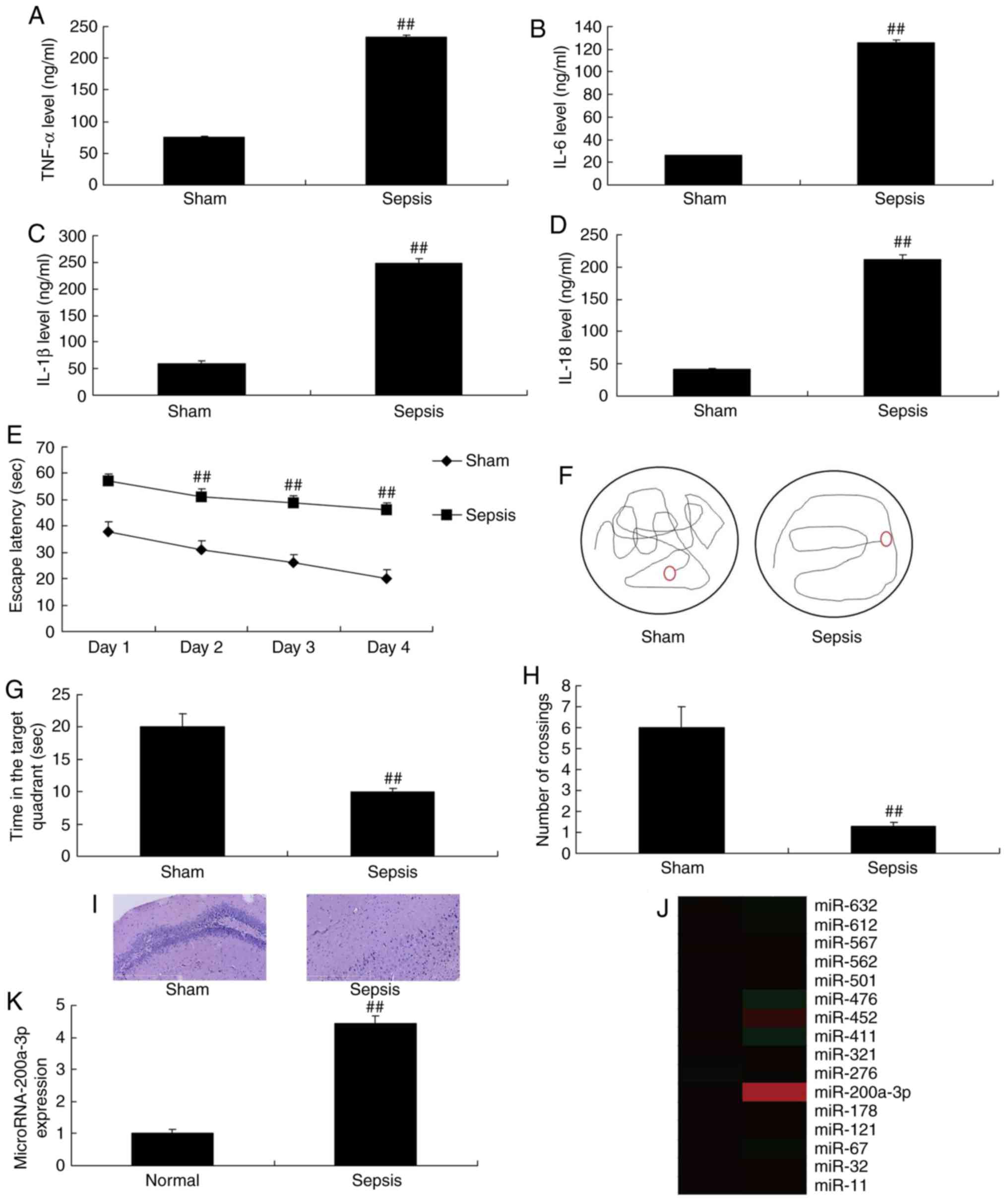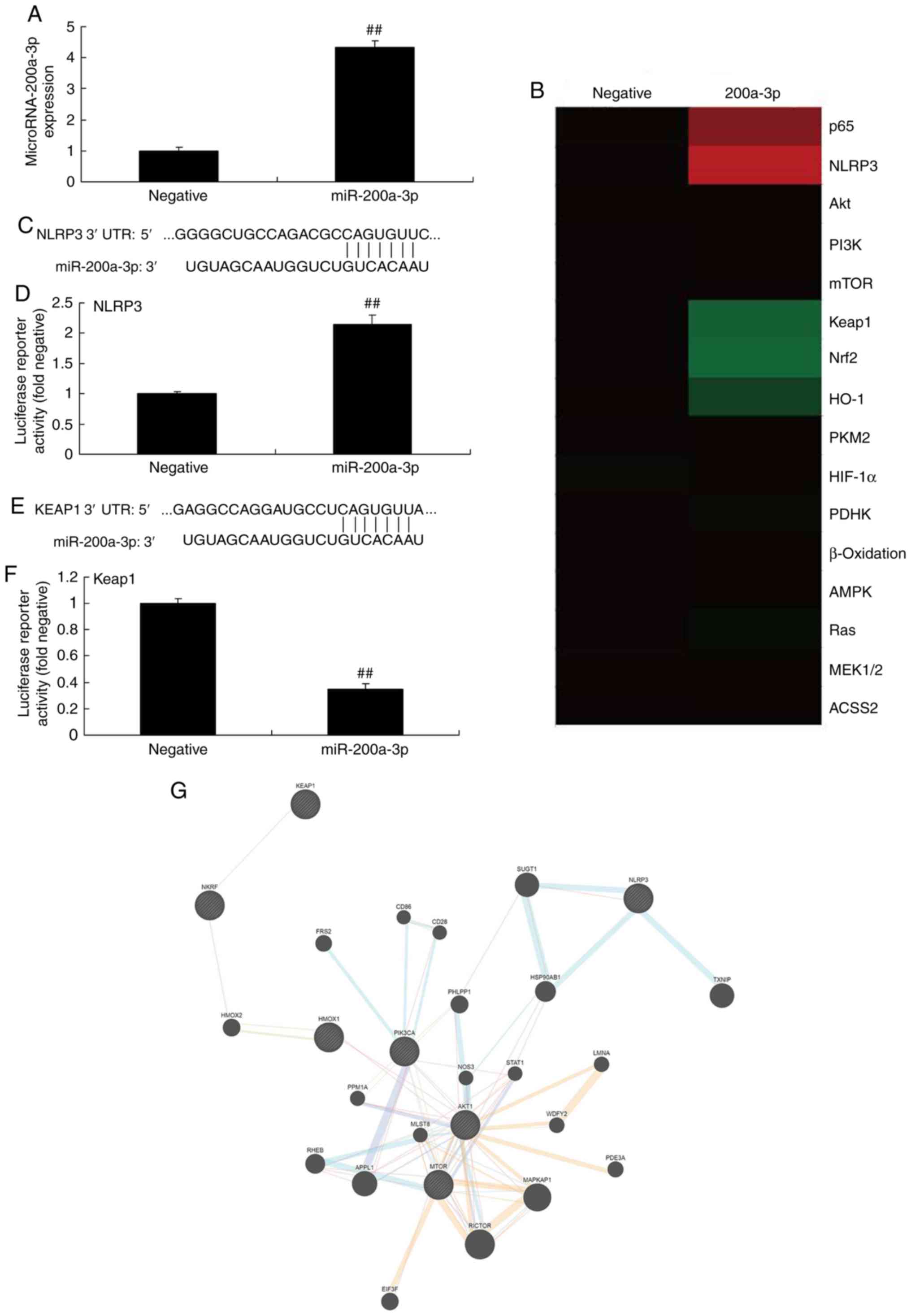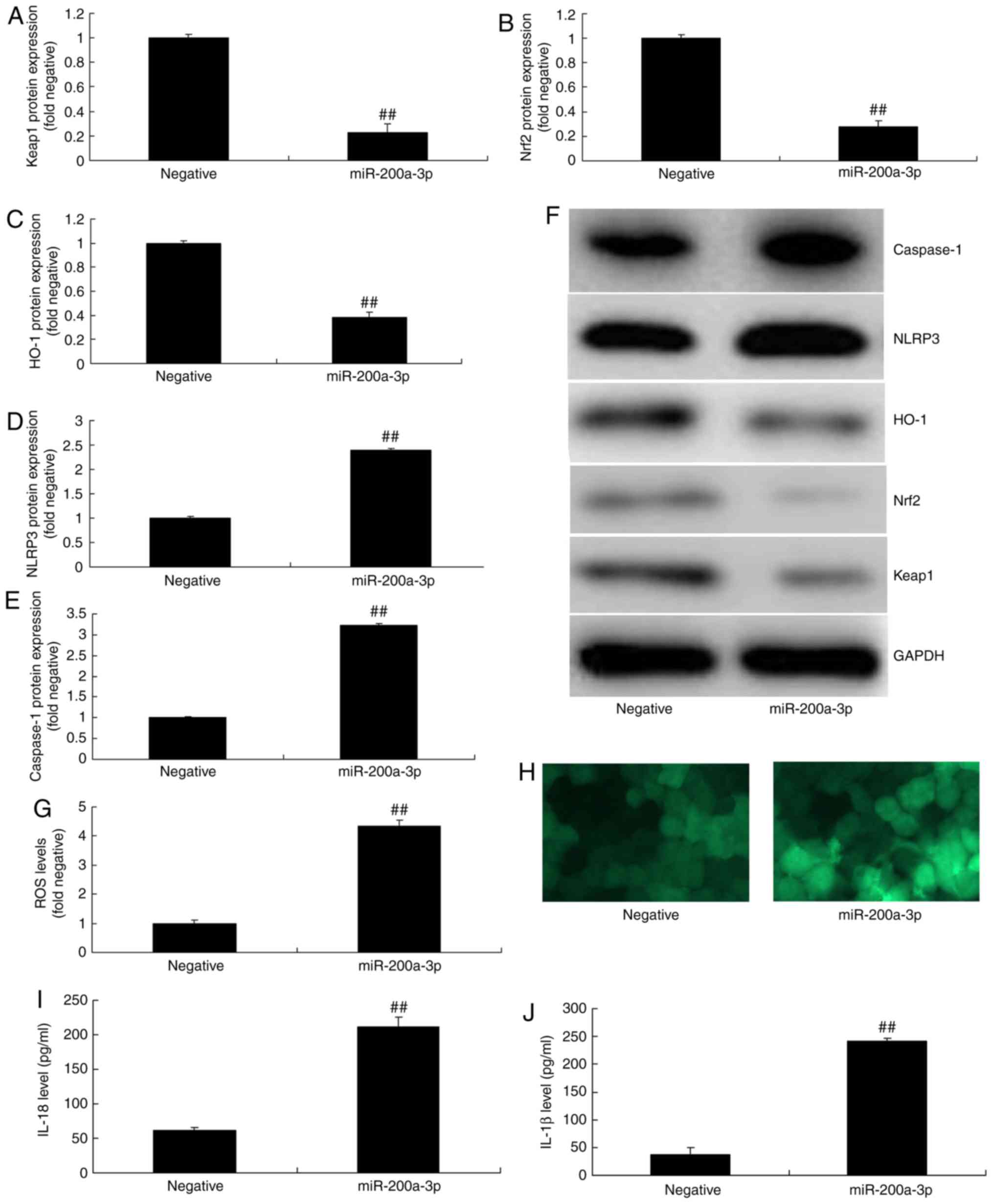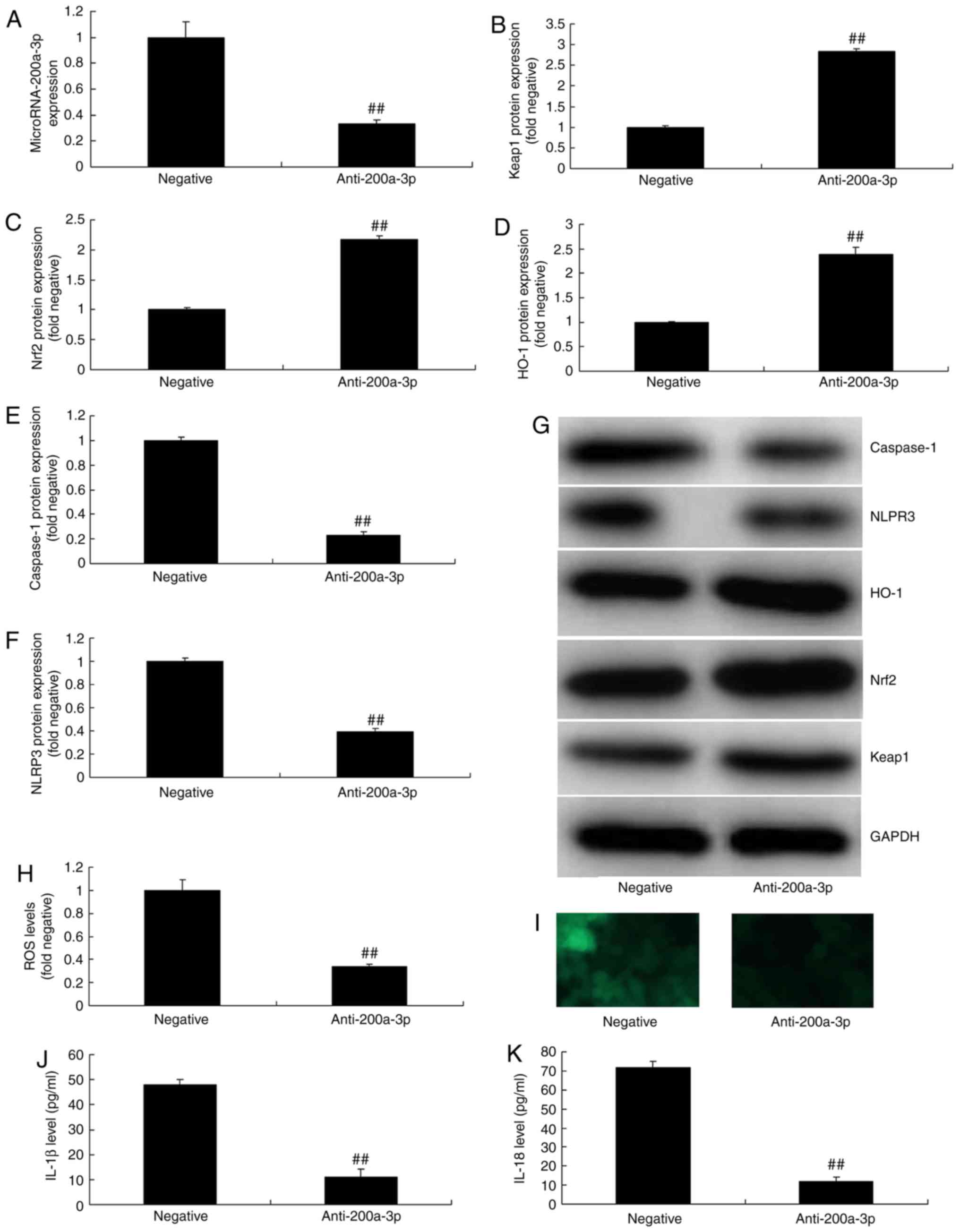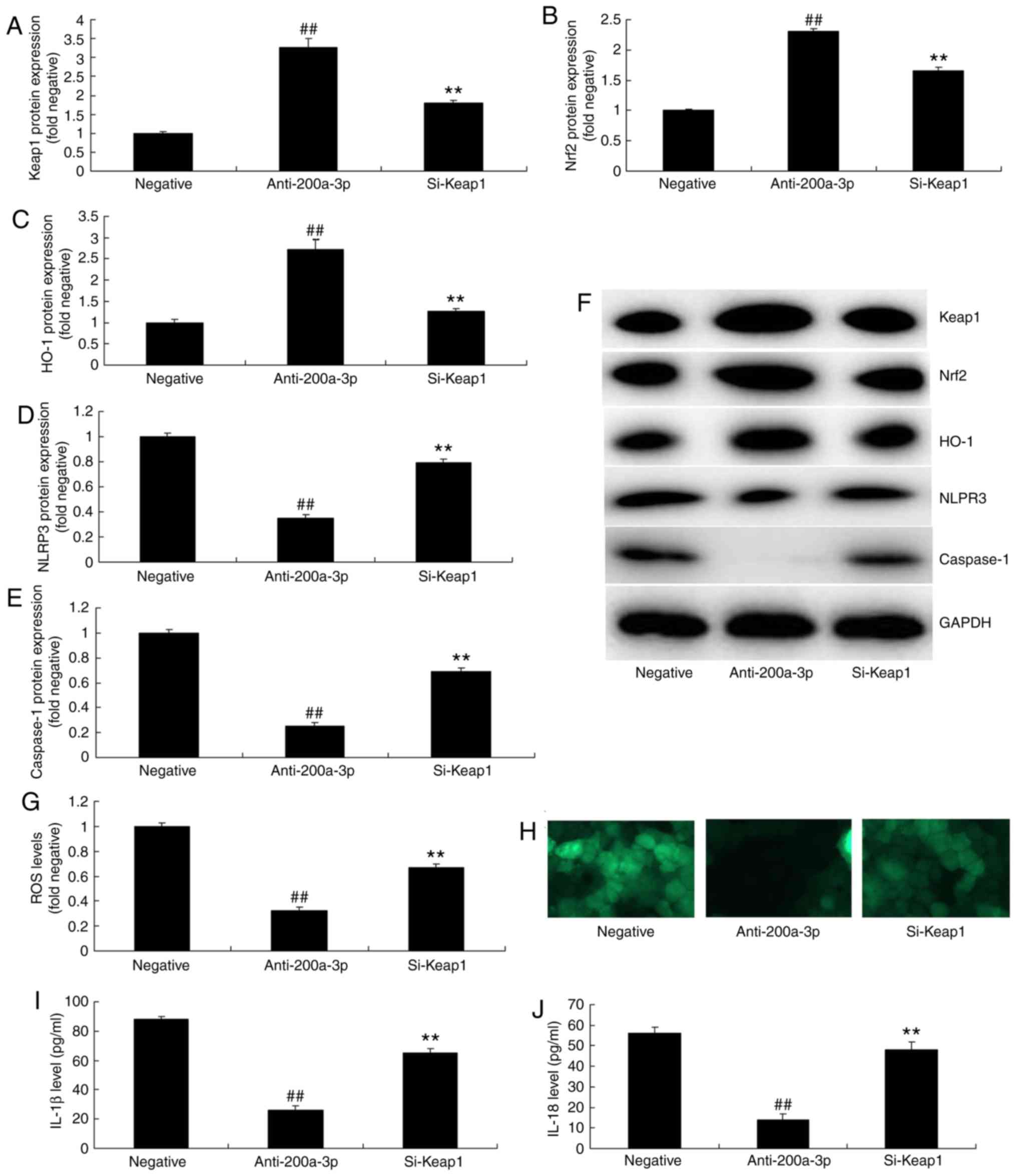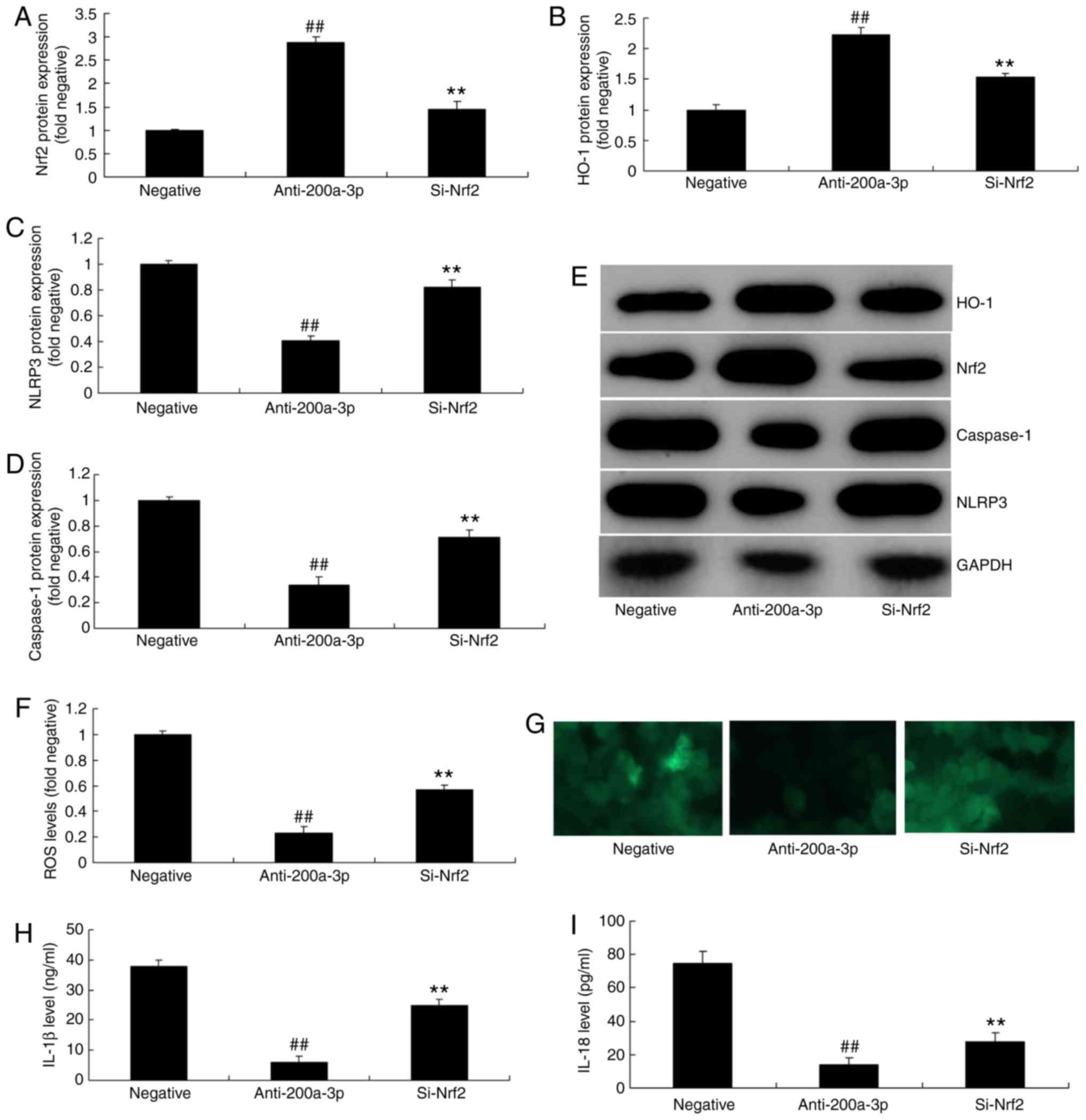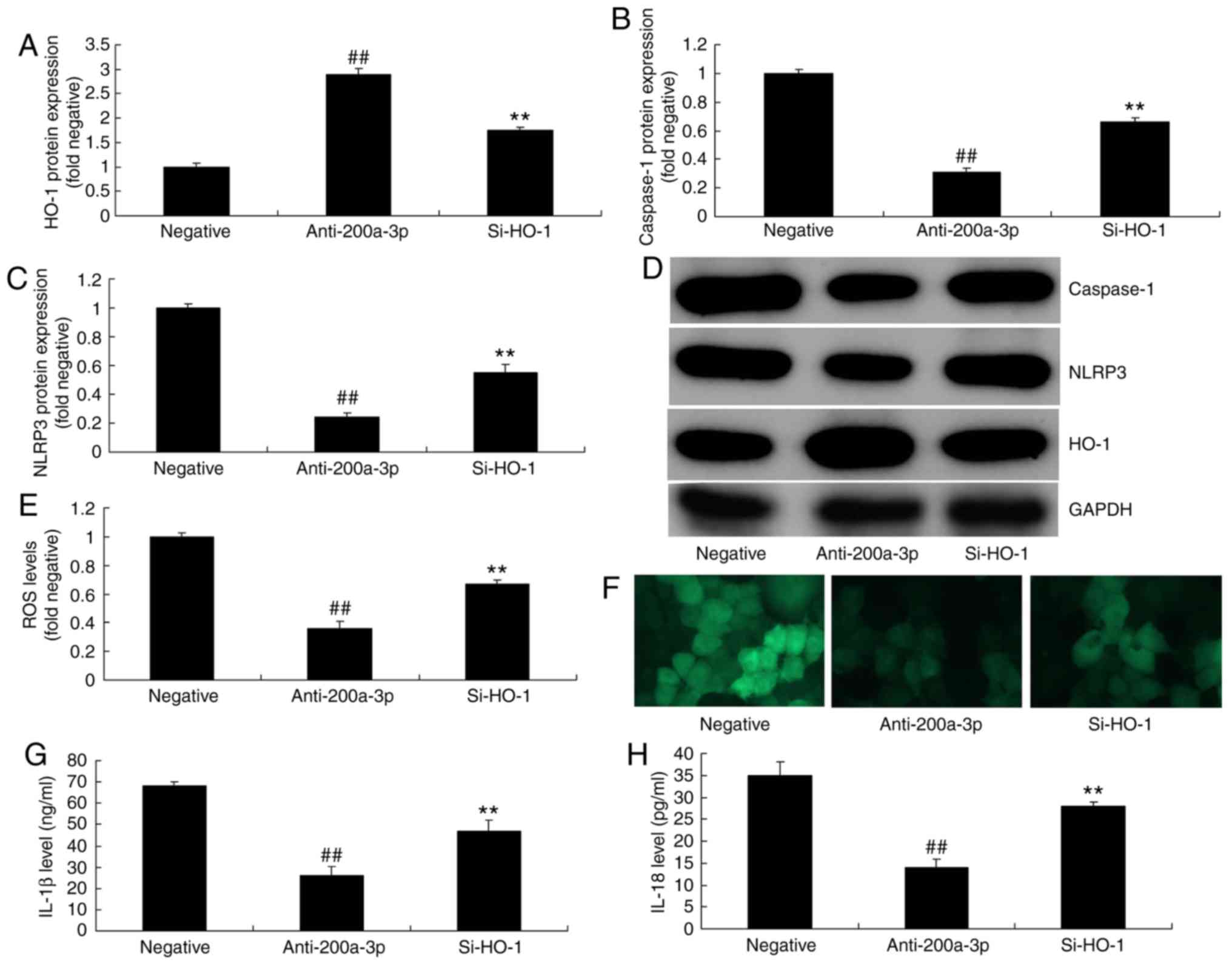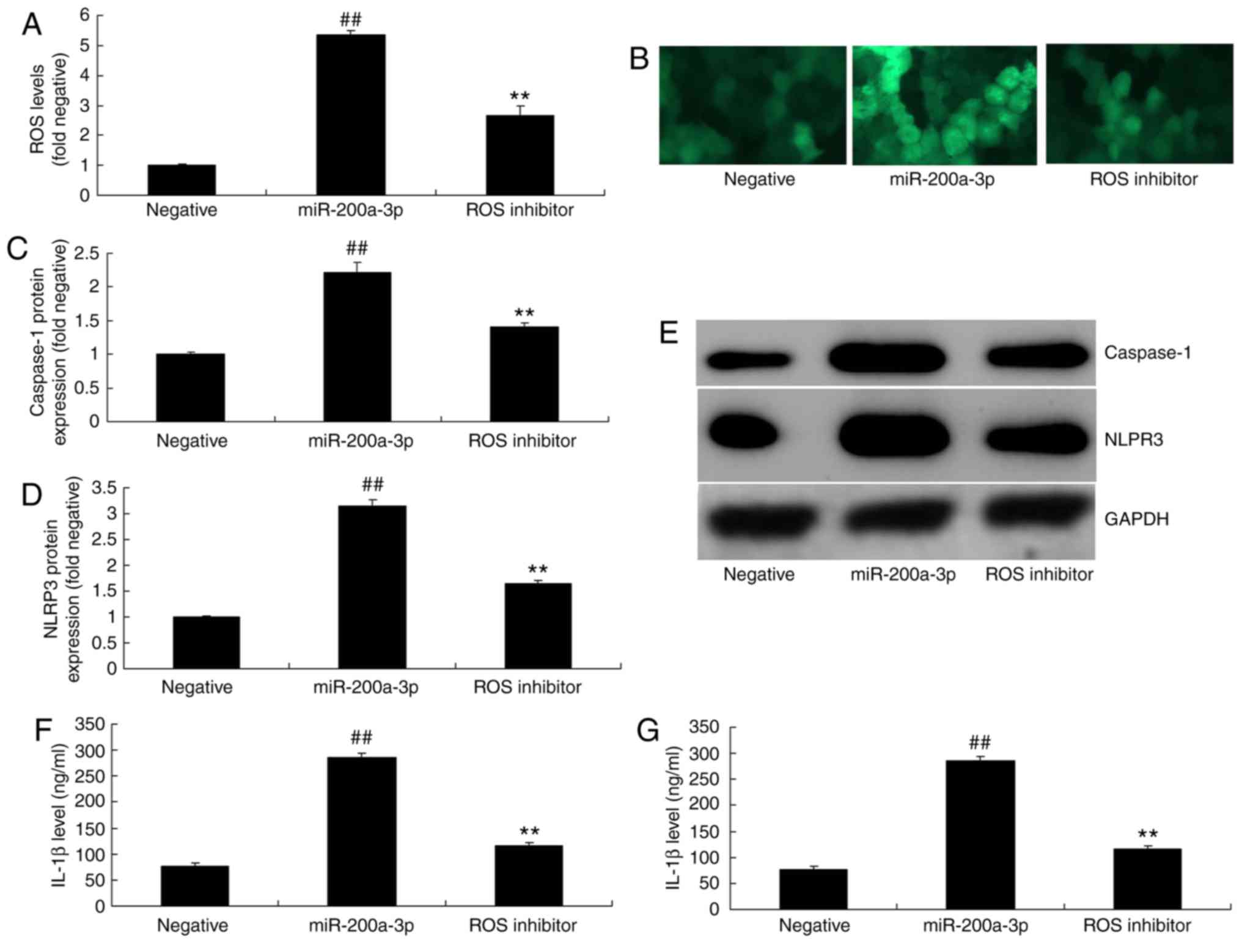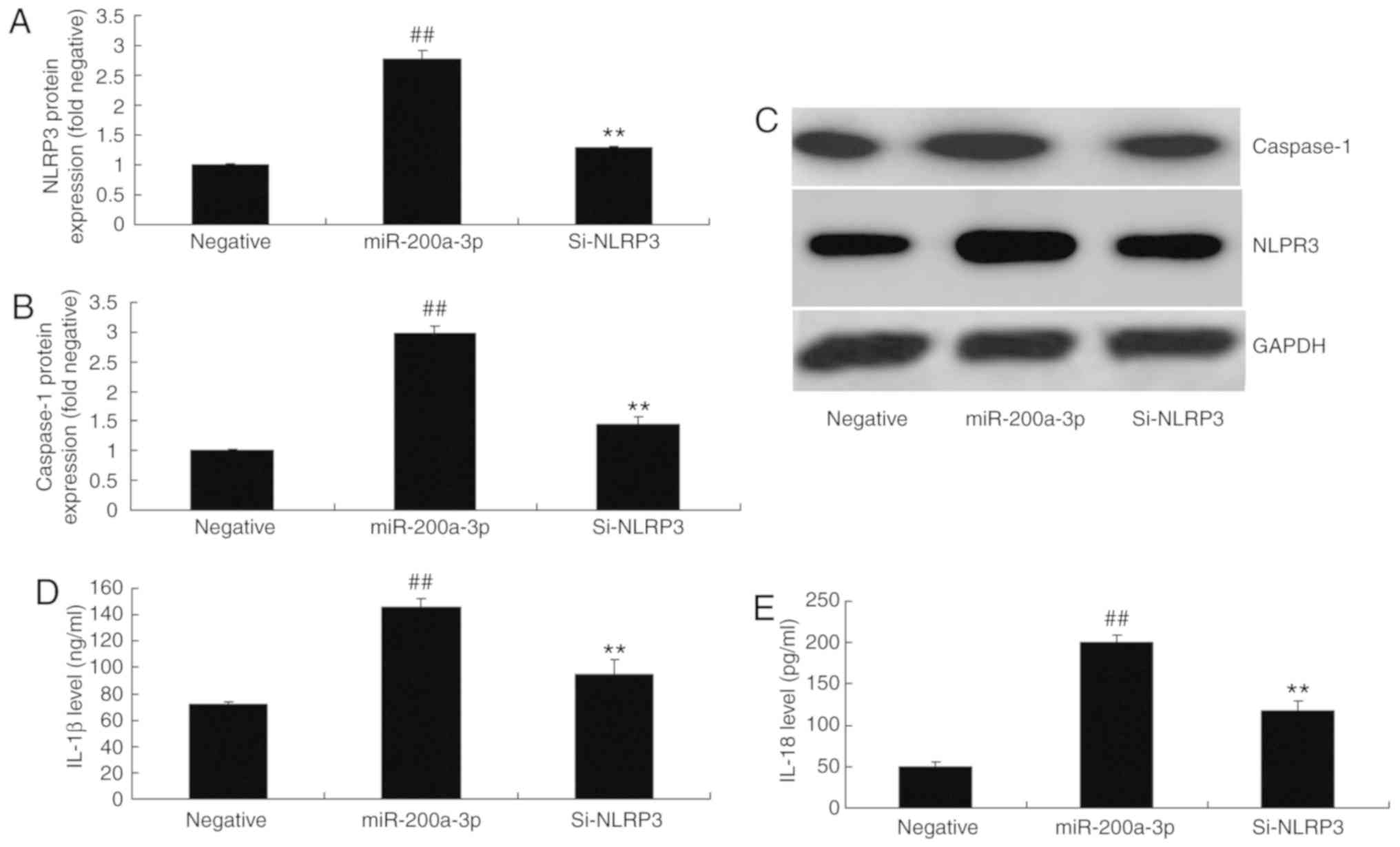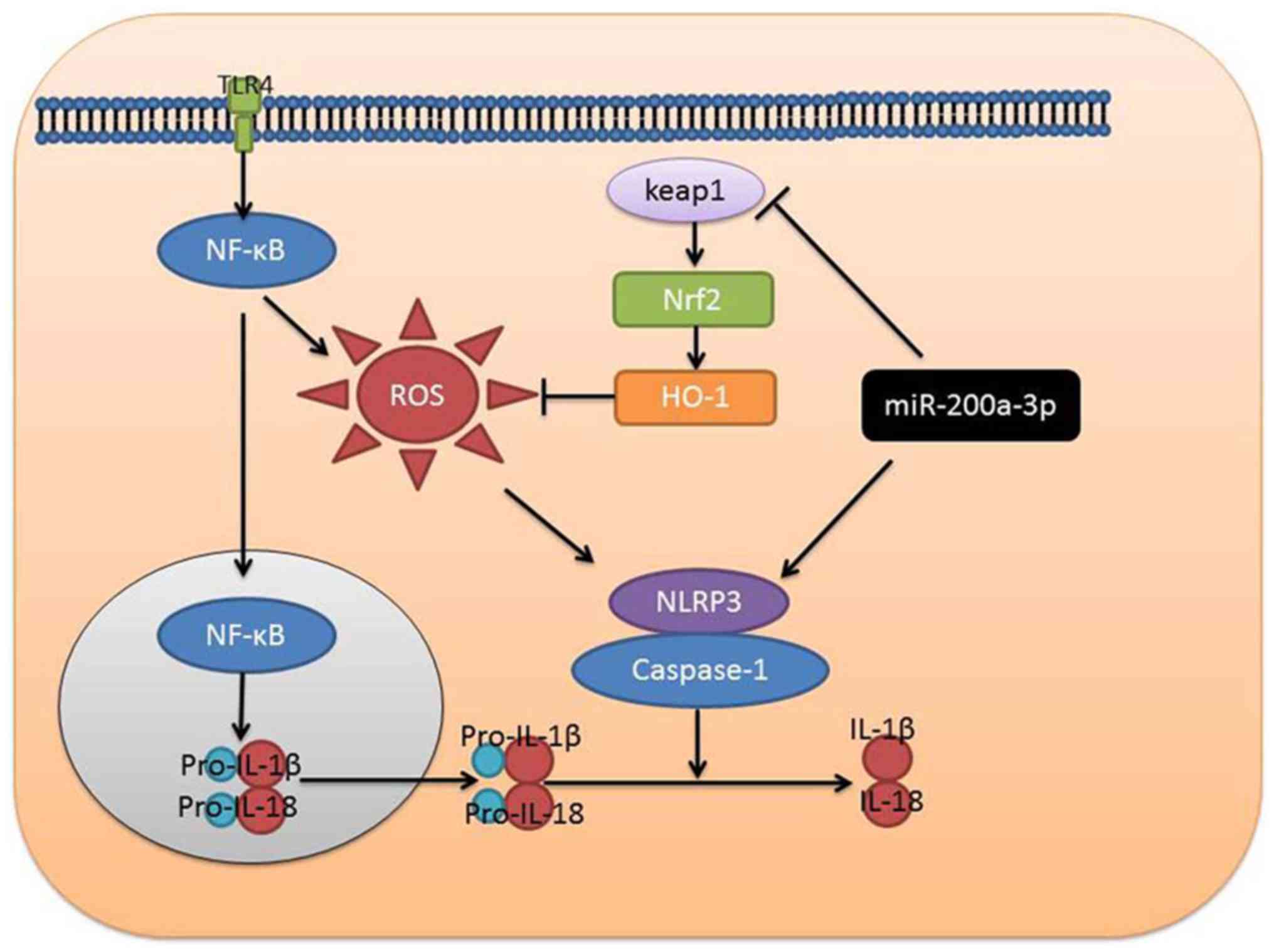|
1
|
Xie J, Liu JH, Liu H, Liao XZ, Chen Y, Lin
MG, Gu YY, Liu TL, Wang DM, Ge H and Mo SL: Tanshinone IIA combined
with adriamycin inhibited malignant biological behaviors of NSCLC
A549 cell line in a synergistic way. BMC Cancer. 16:8992016.
View Article : Google Scholar : PubMed/NCBI
|
|
2
|
Wang XT, Lu YX, Sun YH, He WK, Liang JB
and Li L: TAK-242 Protects against apoptosis in coronary
microem-bolization-induced myocardial injury in rats by suppressing
TLR4/NF-kappaB signaling pathway. Cell Physiol Biochem.
41:1675–1683. 2017. View Article : Google Scholar
|
|
3
|
Trojsi F, Christidi F, Migliaccio R,
Santamaria-Garcia H and Santangelo G: Behavioural and cognitive
changes in neurodegenerative diseases and brain injury. Behav
Neurol. 2018.4935915:2018.
|
|
4
|
Huang Z, Shi T, Zhou Q, Shi S, Zhao R, Shi
H, Dong L, Zhang C, Zeng K, Chen J and Zhang J: miR-141 Regulates
colonic leukocytic trafficking by targeting CXCL12beta during
murine colitis and human Crohn's disease. Gut. 63:1247–1257. 2014.
View Article : Google Scholar
|
|
5
|
Saito S, Thuc LC, Teshima Y, Nakada C,
Nishio S, Kondo H, Fukui A, Abe I, Ebata Y, Saikawa T, et al:
Glucose fluctuations aggravate cardiac susceptibility to
Ischemia/Reperfusion injury by modulating micrornas expression.
Circ J. 80:186–195. 2016. View Article : Google Scholar
|
|
6
|
Roberts RL, Topless RK, Phipps-Green AJ,
Gearry RB, Barclay ML and Merriman TR: Evidence of interaction of
CARD8 rs2043211 with NALP3 rs35829419 in Crohn's disease. Genes
Immun. 11:351–356. 2010. View Article : Google Scholar : PubMed/NCBI
|
|
7
|
Dong YF, Chen ZZ, Zhao Z, Yang DD, Yan H,
Ji J and Sun XL: Potential role of microRNA-7 in the
anti-neuroinflammation effects of nicorandil in astrocytes induced
by oxygen-glucose deprivation. J Neuroinflammation. 13:602016.
View Article : Google Scholar : PubMed/NCBI
|
|
8
|
Liu HL, Wei YJ, Jin ZG, Zhang J, Ding P,
Yang SL, Luo JP, Ma DX, Liu Y and Han W: Design and rationale of
the APELOT trial: A randomized, open-label, multicenter, phase IV
study to evaluate the antiplatelet effect of different loading dose
of ticagrelor in patients with non-st acute coronary syndrome
undergoing percutaneous coronary intervention. Medicine
(Baltimore). 95:e37562016. View Article : Google Scholar
|
|
9
|
Zhang QS, Liu W and Lu GX: miR-200a-3p
promotes b-Amyloid-induced neuronal apoptosis through
down-regulation of SIRT1 in Alzheimer's disease. J Biosci.
42:397–404. 2017. View Article : Google Scholar
|
|
10
|
Livak KJ and Schmittgen TD: Analysis of
relative gene expression data using real-time quantitative PCR and
the 2(-Delta Delta C(T)) method. Methods. 25:402–408. 2001.
View Article : Google Scholar
|
|
11
|
Yang ML, Li JJ, So KF, Chen JY, Cheng WS,
Wu J, Wang ZM, Gao F and Young W: Efficacy and safety of lithium
carbonate treatment of chronic spinal cord injuries: A
double-blind, randomized, placebo-controlled clinical trial. Spinal
Cord. 50:141–146. 2012. View Article : Google Scholar
|
|
12
|
Lin C, Liu Z, Lu Y, Yao Y, Zhang Y, Ma Z,
Kuai M, Sun X, Sun S, Jing Y, et al: Cardioprotective effect of
Salvianolic acid B on acute myocardial infarction by promoting
autophagy and neovascularization and inhibiting apoptosis. J Pharm
Pharmacol. 68:941–952. 2016. View Article : Google Scholar : PubMed/NCBI
|
|
13
|
Cai L, Wang H and Yang Q: CRKL
overexpression promotes cell proliferation and inhibits apoptosis
in endometrial carcinoma. Oncol Lett. 13:51–56. 2017. View Article : Google Scholar : PubMed/NCBI
|
|
14
|
Singh SK, Banerjee S, Acosta EP, Lillard
JW and Singh R: Resveratrol induces cell cycle arrest and apoptosis
with docetaxel in prostate cancer cells via a p53/p21WAF1/CIP1 and
p27KIP1 pathway. Oncotarget. 8:17216–17228. 2017. View Article : Google Scholar : PubMed/NCBI
|
|
15
|
Lee Y, Kim E, Kim BK and Shin JH: A case
of successful reperfusion through a combination of intracoronary
thrombolysis and aspiration thrombectomy in ST-segment elevation
myocardial infarction associated with an ectatic coronary artery.
BMC Cardiovasc Disord. 17:942017. View Article : Google Scholar : PubMed/NCBI
|
|
16
|
Gwag HB, Kim EK, Park TK, Lee JM, Yang JH,
Song YB, Choi JH, Choi SH, Lee SH, Chang SA, et al:
Cardioprotective effects of intracoronary morphine in ST-Segment
elevation myocardial infarction patients undergoing primary
percutaneous coronary intervention: A prospective, randomized
trial. J Am Heart Assoc. 6:e0054262017. View Article : Google Scholar : PubMed/NCBI
|
|
17
|
Dalmau Llorca MR, Goncalves AQ and
Forcadell Drago E: Fernández-Sáez J, Hernández Rojas Z, Pepió
Vilaubí JM, Rodríguez Cumplido D, Morral Parente RM and Aguilar
Martín C: A new clinical decision support tool for improving the
adequacy of anticoagulant therapy and reducing the incidence of
stroke in nonvalvular atrial fibrillation: A randomized clinical
trial in primary care. Medicine (Baltimore). 97:e95782018.
View Article : Google Scholar
|
|
18
|
Khan MT, Ikram A, Saeed O, Afridi T, Sila
CA, Smith MS, Irshad K and Shuaib A: Deep vein thrombosis in acute
stroke-a systemic review of the literature. Cureus.
9:e19822017.
|
|
19
|
Xiao Y, Yan W, Lu L, Wang Y, Lu W, Cao Y
and Cai W: p38/p53/miR-200a-3p feedback loop promotes oxidative
stress-mediated liver cell death. Cell Cycle. 14:1548–1558. 2015.
View Article : Google Scholar : PubMed/NCBI
|
|
20
|
Costa CL, Spilborghs GM, Martins MA,
Saldiva PH and Mauad T: Nitric acid-induced bronchiolitis in rats
mimics childhood Bronchiolitis obliterans. Respiration. 72:642–649.
2005. View Article : Google Scholar : PubMed/NCBI
|
|
21
|
Ding XQ, Wu WY, Jiao RQ, Gu TT, Xu Q, Pan
Y and Kong LD: Curcumin and allopurinol ameliorate fructose-induced
hepatic inflammation in rats via miR-200a-mediated TXNIP/NLRP3
inflammasome inhibition. Pharmacol Res. 137:64–75. 2018. View Article : Google Scholar : PubMed/NCBI
|
|
22
|
Sadaka F, Jadhav A, O'Brien J and Trottier
S: Do all acute stroke patients receiving tPA require ICU
Admission? J Clin Med Res. 10:174–177. 2018. View Article : Google Scholar : PubMed/NCBI
|
|
23
|
Alhazzani AA, Mahfouz AA, Abolyazid AY,
Awadalla NJ, Aftab R, Faraheen A and Khalil SN: Study of stroke
incidence in the aseer region,. Southwestern Saudi Arabia Int J
Environ Res Public Health. 15:E2152018. View Article : Google Scholar
|
|
24
|
Wei J, Zhang Y, Luo Y, Wang Z, Bi S, Song
D, Dai Y, Wang T, Qiu L, Wen L, et al: Aldose reductase regulates
miR-200a-3p/141-3p to coordinate Keap1-Nrf2, Tgfb1/2, and Zeb1/2
signaling in renal mesangial cells and the renal cortex of diabetic
mice. Free Radic Biol Med. 67:91–102. 2014. View Article : Google Scholar
|















